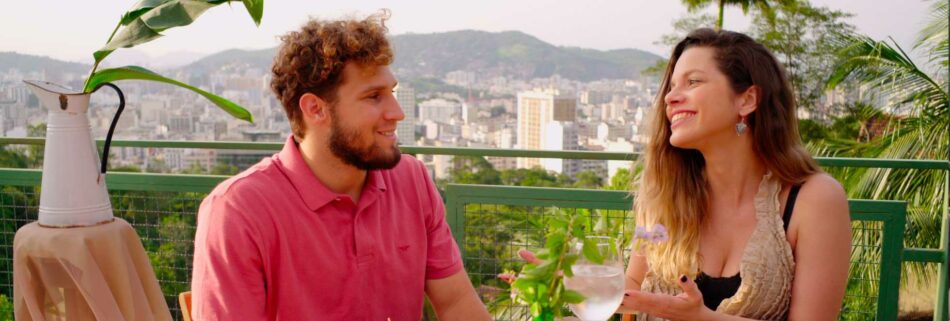You can score BIG points just being able to meet & greet in Brazil. Before you even know how to say anything else, learn these. Use them to practice your pronunciation - you'll be using them over and over.
For example -- Tudo bem is the main thing everyone says when seeing someone you know (or don't!). Let's say it now: tudoh bang. Ok, now go soft on the "bang" so it's more like "bayn". Tudo bem! Sonically, it's very satisfying. You will use this "bayn" sound in many other words and it's important to get it right. Besides, it just sounds cool!
the expression: tudo bem
tudo bem = everything fine or, everything ok. It can be a question as well as an answer. Brazilians will also say, tudo bom. It’s the same thing, though it translates to literally: everything good.
Tudo bem? (Everything ok?)
Está tudo bem! (Everything is fine!)
the expression: muito prazer
The proper way to say this is, muito prazer em conhecer você ➜➜ very pleased to meet you. The literal translation is more like: lot’s of pleasure in knowing you.
But, that’s a mouthful. Brazilians usually shorten this to, muito prazer or even, prazer.
What about saying, how do you do? Brazilians don’t say that! You can say, como vai? or, tudo bem? instead.
normal ➜ Muito prazer! (It's a great pleasure!)
formal ➜ Muito prazer em conhecer você. (Great to meet you.)
Before the tudo bem Brazilians will throw in, e aí.
e = and
aí = there
So you have:
✽ Though literally you are saying, "And there, all well?"
Como vai?
This translates literally to: How goes?
But don't worry about that it does not sound like that. You can add a bit of a formal touch and say, Como vai você? = How are you doing? But notice that you're using the verb IR, not FAZER. If you said, Como você está fazendo? you'd get some strange reactions. You can say, O que você está fazendo (What are you doing?)
Como está>
This is short for: Como você está?
Add an "aí" to the end and you get: How are you there?
This still sounds weird to us... A better translation might be: Hey there, how are you?

 Muito or Muita?
Muito or Muita?
Comentários